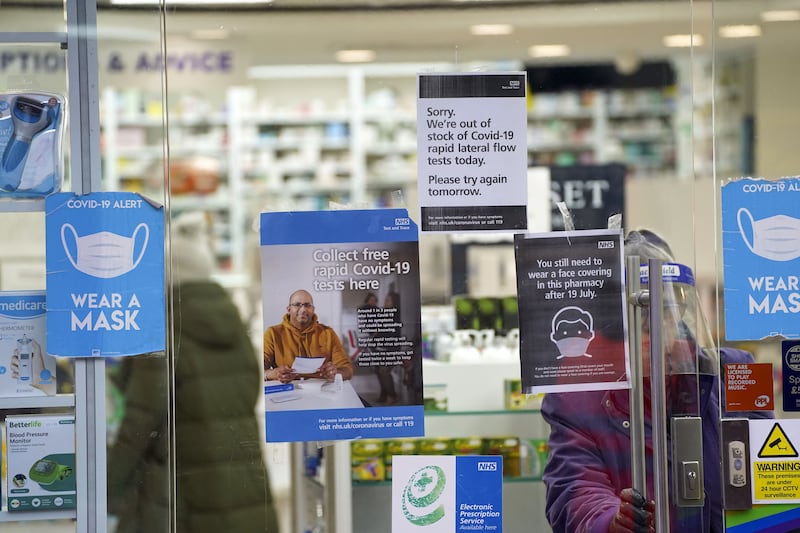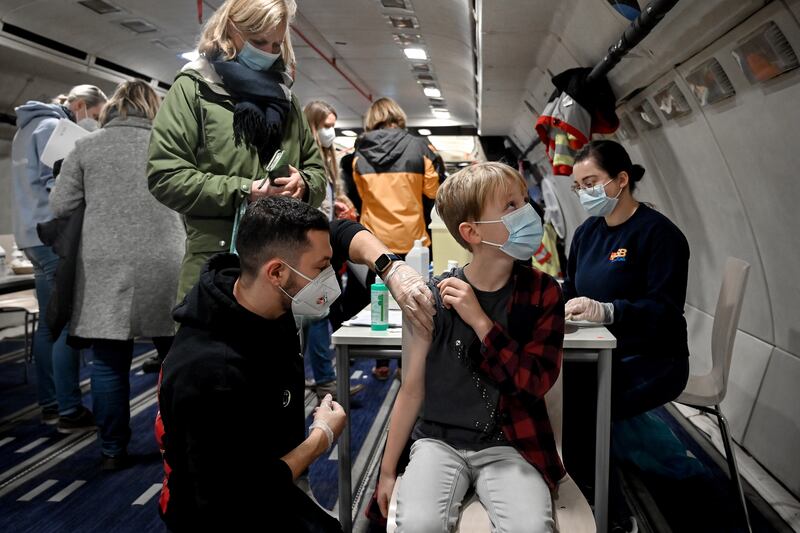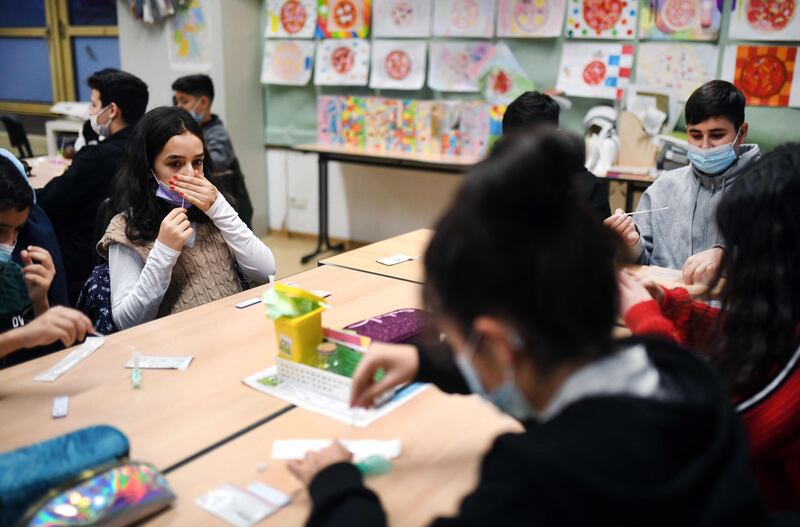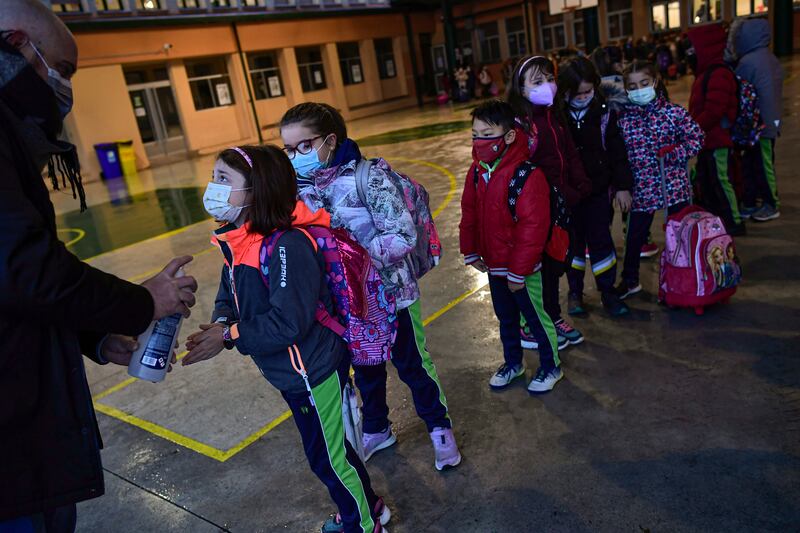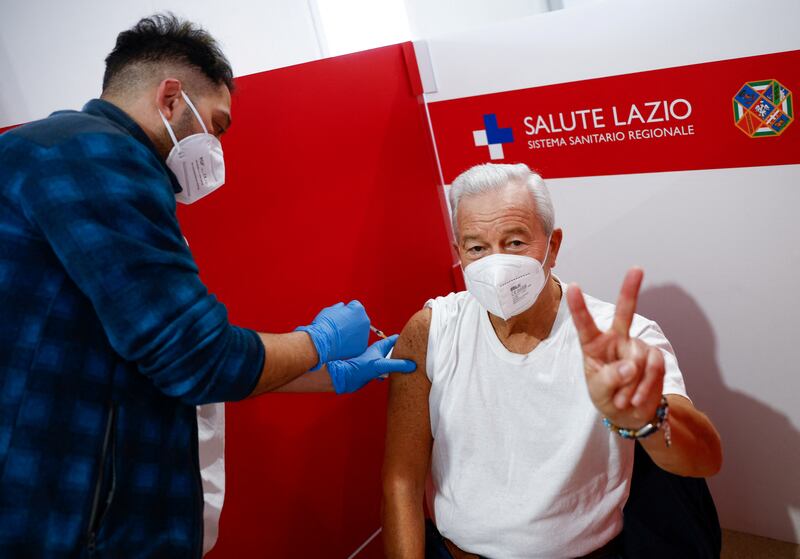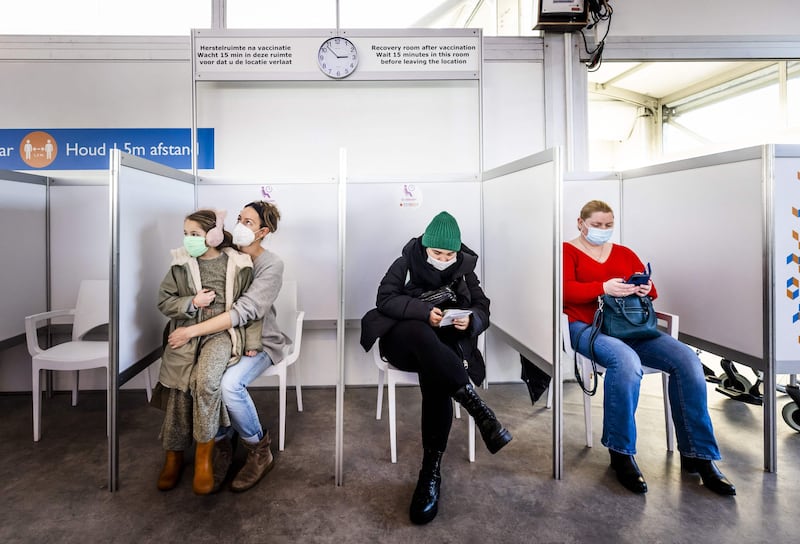Coronavirus restrictions led to a sharp fall in the number of children being admitted to hospital with infections, a study has found.
Researchers at the University of Oxford said admissions for life-threatening illnesses such as sepsis, measles and meningitis fell dramatically at the start of Covid-19pandemic in 2020, probably because of social distancing and improved hygiene.
They have called for more studies to find how children can better be protected when pandemic-related safety measures are no longer practicable.
The study, published in the British Medical Journal, examined hospital admissions for children up to the age of 14 for common and severe childhood infections in England between March 2017 and the end of June 2021.
Among the common respiratory infections, the greatest percentage reduction was for influenza.
The number of flu-related hospital admissions decreased by about 94 per cent, from 5,379 to 304, in the 12 months from March 1, 2020.
For bronchiolitis, admissions decreased by more than 80 per cent, from 51,655 to 9,423 in 2020-21.
Among the severe invasive infections, percentage reductions ranged from 26 per cent for osteomyelitis to 50 per cent for meningitis.
And for the vaccine-preventable infections, reductions ranged from 53 per cent for mumps to 90 per cent for measles, for which admissions fell from 149 to 15 in 2020-21.
The researchers concluded that the measures used to stem the tide of Covid-19 – social distancing, school closures and minimal group activities, as well as reduced travel with its associated reduced air pollution – also contributed to the fall in admissions for common and severe childhood infections.
Some children with conditions such as asthma were also “substantially protected” from other infections that could havey been “life-threatening”, they said.
Other measures such as increased cleaning, better hand hygiene, the use of face masks and “improved respiratory etiquette” may have also contributed to the reduction.
They said more recent data indicate that after May last year, when most Covid-related restrictions in England ended, croup and upper respiratory tract infections became more common than usual.
“Since the onset of the Covid-19 pandemic, there have been major reductions in hospital admissions for respiratory, severe invasive, and vaccine preventable infections in children in England,” the researchers wrote.
“The findings indicate the extent to which measures related to the control of Covid-19 can also impact on the transmission of other specific infectious diseases in childhood.”
They said the study’s outcome indicated “that children with severe underlying comorbidities, including extremely preterm infants, those with congenital cardiac disease and those with asthma, have been protected from severe and potentially life-threatening infection”.


